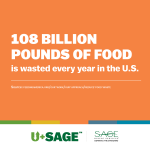There’s a ton of nutritional information and advice circulating out there, and it can be overwhelming and confusing to separate fact from fiction. Our Registered Dietitians are constantly evaluating the latest nutritional research, claims, and trends, and it helps to take a thoughtful, balanced approach. Here are some of the considerations when digesting nutritional information. Try practicing them the next time you hear about the hottest new trend!
What’s being said?
Take a look at the claims and benefits touted for products and diet plans. See whether there’s an explanation for how to receive or achieve the benefits. Lastly, pay attention to what’s required to follow the plan or use the product.
Some red flags include:
- Seeming too good to be true a cure-all.
- Using buzzwords (detox, superfoods, metabolism booster).
- Providing a laundry list of rules to follow.
- Giving anecdotal evidence (I did it, so you can too!).
- Recommending cutting out a whole food group or groups.
Who’s saying it?
Make sure that the information is coming from a credible, reliable source. Look at the person’s credentials and qualifications, as well as their intentions for providing nutritional guidance.
Some red flags include:
- Having no reputable or relevant credentials or qualifications.
- Promoting a product.
How are they saying it?
The language and tone can indicate the credibility of a source. Look for sources that are neutral and unbiased in the wording and approach they use when presenting nutritional information.
Some red flags include:
- Fearmongering (toxins, poisons, hormone disruptors).
- Making big promises (results guaranteed).
- Portraying mistrust or incompetence of science and medicine (not even doctors know about this, research will soon prove this).
How might it fit into your lifestyle?
If you want to apply nutritional information to yourself or your family, you must consider whether it will be sustainable long term. Think about safety, taste, cost, schedule, culture, stress, and overall feasibility. You’ll also want to consider potential impacts on all aspects of your well-being — physical, social, emotional, mental, and financial. Make sure to meet with your doctor or dietitian before starting any diet plan or product to ask whether it’s safe and appropriate for you.
Some red flags include:
- Posing a risk to an existing health condition or interfering with medications you’re taking.
- Making drastic lifestyle changes.
- Requiring expensive and/or time-consuming upkeep.
- Cutting out foods you really enjoy.
- Feeling stressed or overwhelmed when implementing around mealtimes.
Where else is it being talked about?
Just because information has become popular and mainstream doesn’t necessarily mean it’s credible or accurate. Look beyond the media hype. Do a quick search in a research database, such as pubmed.gov, to see whether the trend has peer-reviewed science to back up its claims.
Some red flags include:
- Interpreting association as causation (high ice cream consumption is associated with high rates of sunburn — this does not mean that eating ice cream causes sunburn).
- Relying on research with limitations (small sample size, short intervention time, short follow-up period, convenience sampling, limited demographic representation).
The Bottom Line
Nutritional information is everywhere — and frankly, it can be exhausting. Using a thoughtful, guided approach to efficiently sort through it all can help save you from wasting your valuable time, money, and energy on products and diets that are unnecessary, unsustainable, and potentially unsafe. When in doubt, ask questions, think critically, and stay curious.
When there are rules or restrictions for food, stress and guilt often come with them. This can spiral into disordered eating or eating disorders, particularly in adolescent and teenager populations. At SAGE, we understand the risk of disordered eating and take this very seriously. Since 2011, we’ve partnered with Eating Recovery Center of Maryland to develop a companywide Approach for Preventing Eating Disorders. This program educates Team Members to recognize warning signs and sets a standard for how to communicate about food.
SAGE promotes an All Foods Fit philosophy. This means that there are no “good” or “bad” foods, and all foods have a place on the plate, because there are so many different reasons to eat different foods — from house-made pizza and cookies to fresh fruits and vegetables and everything in between. The community members we serve can practice variety, balance, and moderation to support their overall health and well-being.









